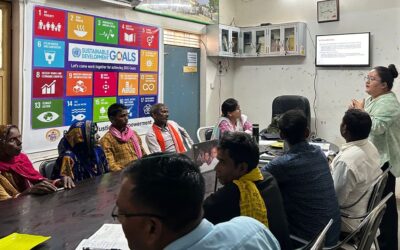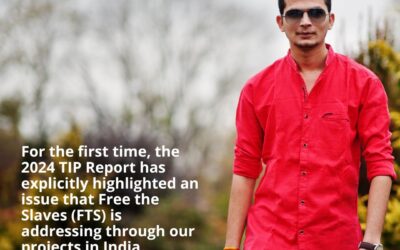You’ve seen her posts in the FTS blog. Now you can read the in-depth account of one woman who decided to take action after discovering that child slavery still exists.
The book is called Facing the Monster: How One Person Can Fight Child Slavery. In it, author Carol Metzker describes her moving journey—both physical and emotional—to understand modern slavery, including visits to FTS frontline projects. It’s a deeply personal story about confronting one of the world’s greatest injustices.
“At close range I had to face a real, roaring monster,” Carol writes, “we could no longer deny the existence of the growing beast.”
Facing the Monster is available online from Amazon and Barnes and Noble. A major portion of the proceeds will help FTS work in India. You can learn more at the Facing the Monster website.
“Metzker’s compelling chronicle inspires us with the amazing work of today’s liberators and the struggle for healing by slavery survivors,” says FTS Associate Director of Programs Ginny Baumann.
“But perhaps the most important part of her story is to show us that because slavery reaches deeply into all our lives, those same connections allow each of us to be part of the liberation story, and of the ending of slavery,” Ginny says. “We can walk with Metzker through her encounters with slavery, and emerge to take a stand.”



